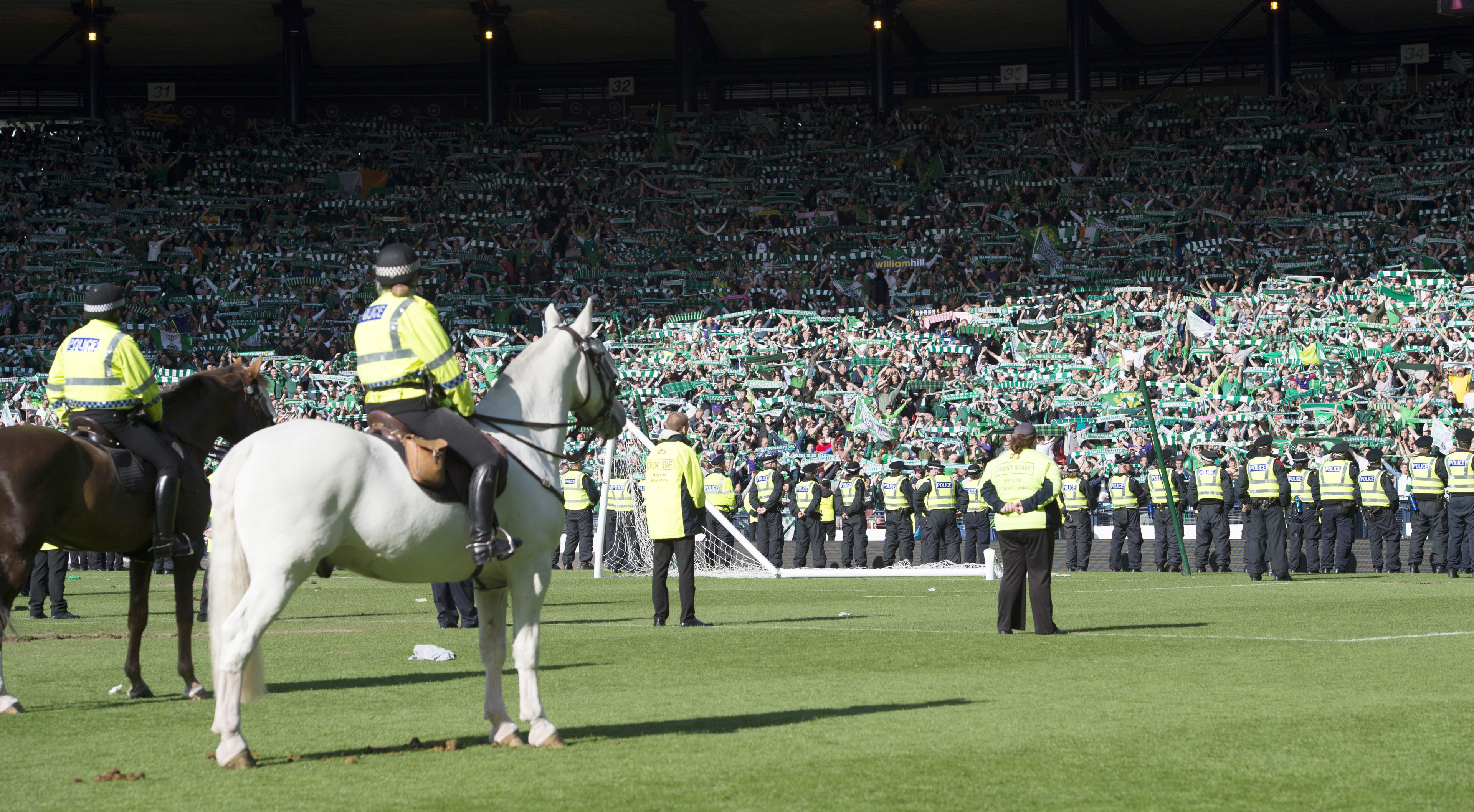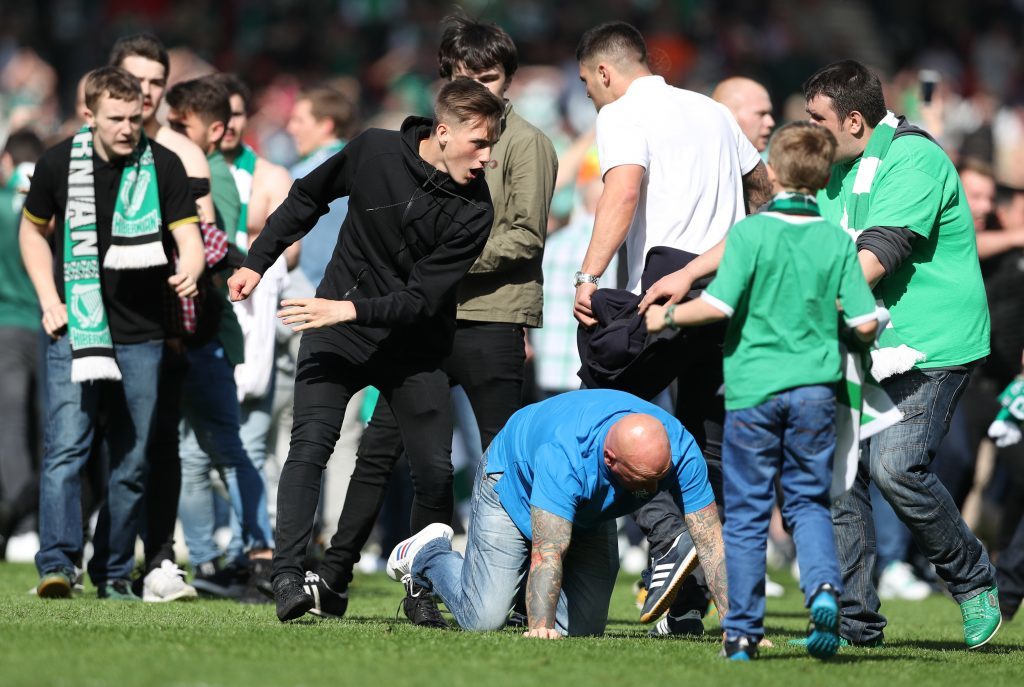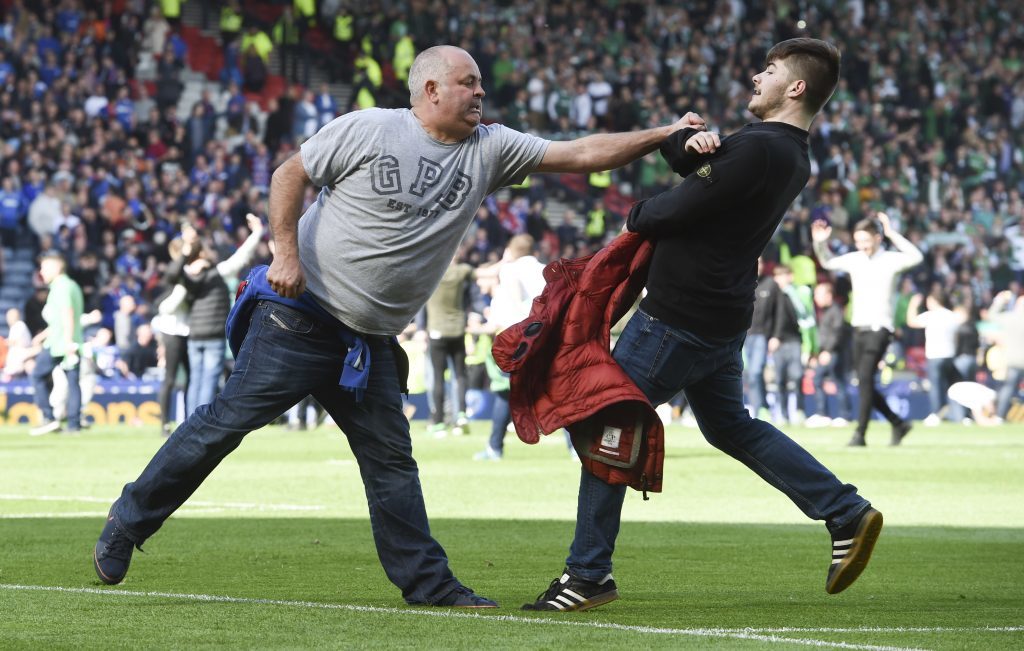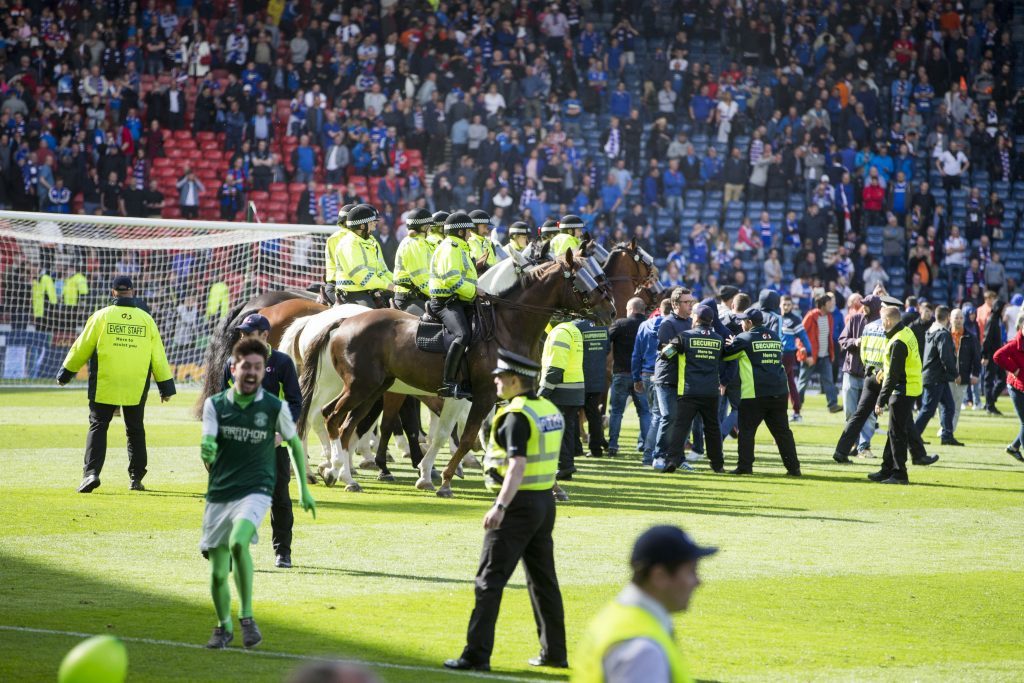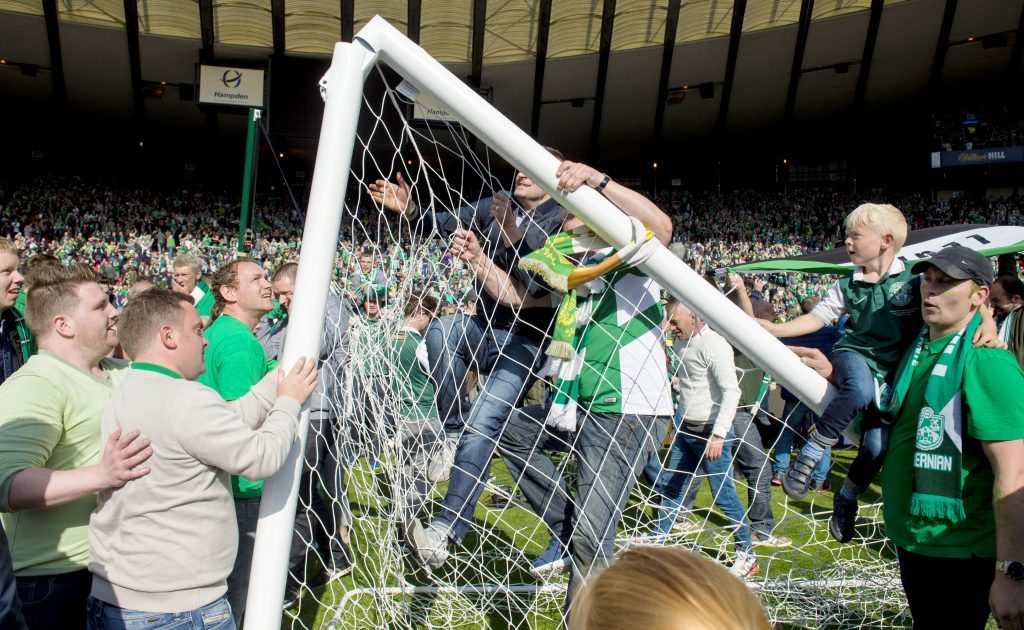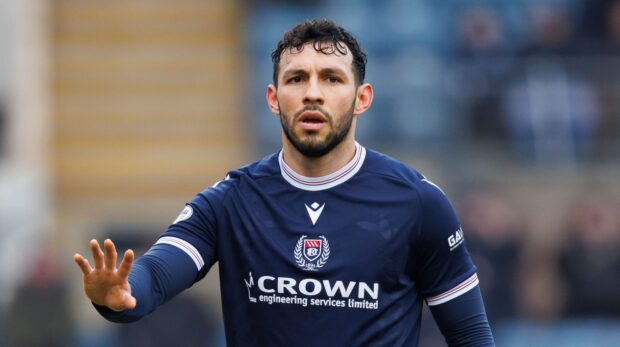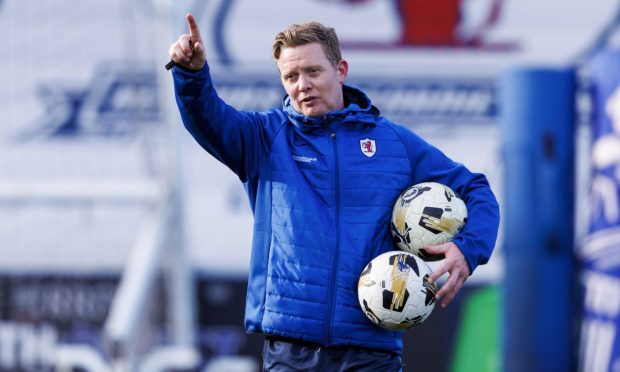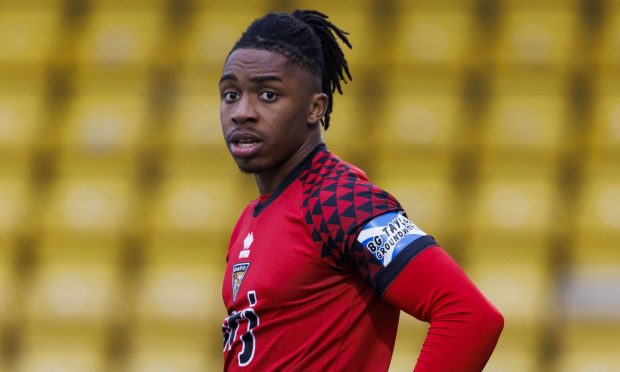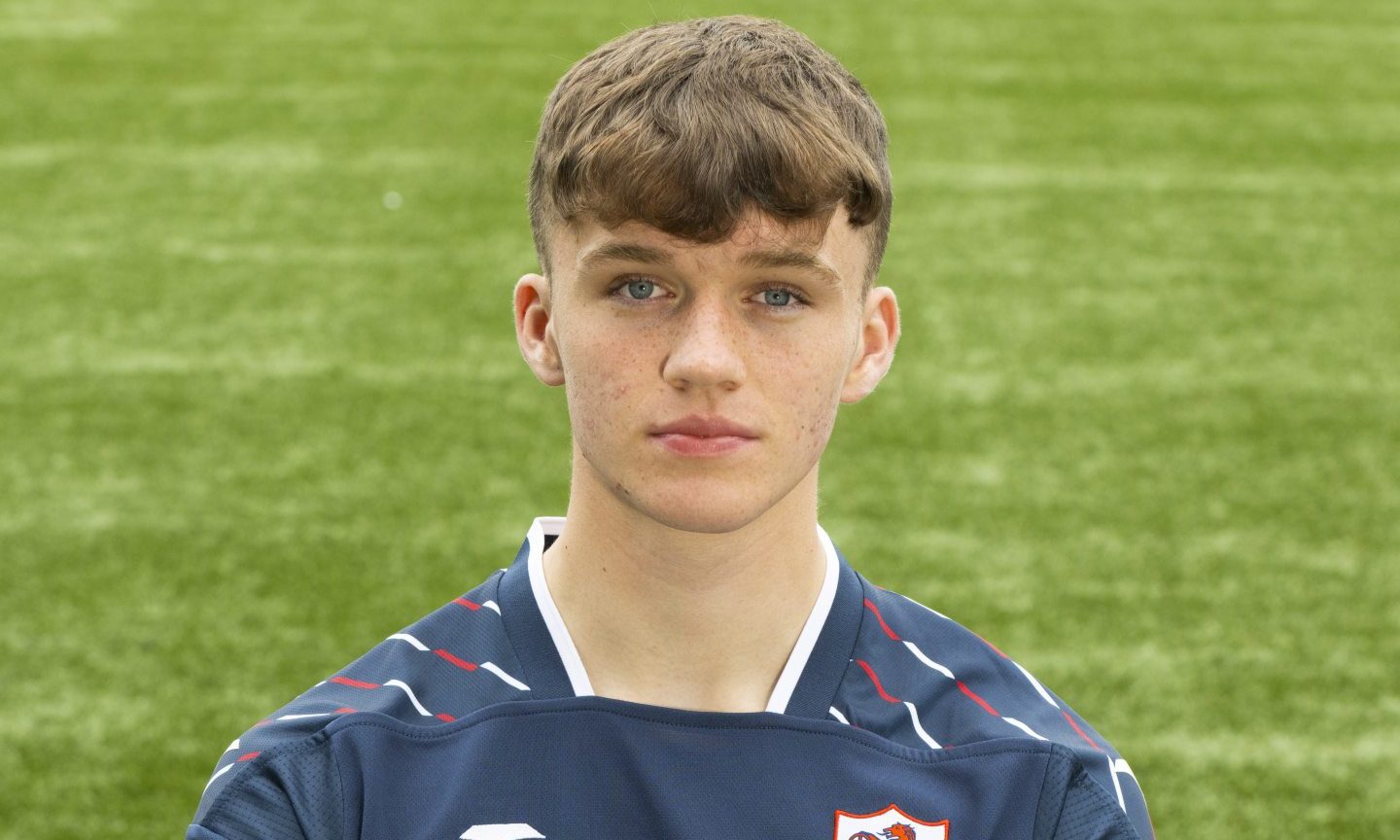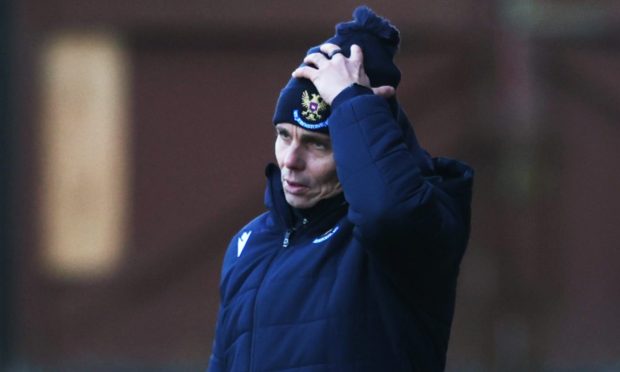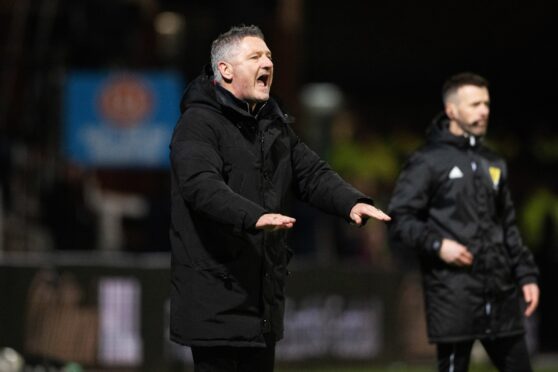Police are continuing to investigate fan violence at the end of the Scottish Cup Final as Rangers hit out at the handling of the trouble.
The Glasgow football club said several players and staff were assaulted as thousands of Hibernian supporters flooded on to the pitch following the Edinburgh team’s dramatic 3-2 win at Hampden Park.
Rangers fans also made it past stewards on to the pitch, leading to a period of fighting between the two sets of supporters before mounted Police Scotland officers restored order at the national stadium.
So far 11 arrested have been made and officers are said to be trawling through CCTV and online footage of the trouble to identify people involved.
The win marked Hibs’ first Scottish Cup triumph since 1902 and club chairman Rod Petrie put the scenes down to “over-exuberance” in the immediate aftermath of the event.
A club statement later confirmed Hibs would “co-operate fully into any inquiry into the pitch invasion which followed the club’s historic Scottish Cup win at Hampden Park”.
However, Rangers reacted angrily and demanded action from Police Scotland and the Scottish Football Association (SFA) against those responsible.
The club said in a statement said: “It was clear to most of those who watched in horror that the SFA’s security procedures failed when Hibernian’s fans went over the top in their thousands.
“It is to be hoped that all of Scottish football will share Rangers’ disgust and any attempts to attach blame to our supporters for the disgraceful and violent behaviour, which led to our players and fans fearing for their safety, will not be accepted or tolerated by this club.”
Rangers said a number of their own fans encroached the pitch, but only after “severe provocation”.
The statement said: “This distressing and deeply disturbing episode would never have happened had Hibs fans behaved properly but, as they swarmed across the pitch, it became immediately obvious that the security procedures were inadequate and had failed.
“This thuggish behaviour must be investigated and as many culprits as possible brought to book and formally charged.”
The Ibrox club also hit out at Nicola Sturgeon, saying: “It must also be said that it was not at all helpful to see leading members of the Scottish Government, including the First Minister whose parish is Govan, passing comment on social media without any attempt to condemn the behaviour of Hibernian’s fans.”
Congratulations @HibsOfficial – my other half @PeterMurrell is just one of thousands of happy Hibees tonight. #ScottishCupFinal
— Nicola Sturgeon (@NicolaSturgeon) May 21, 2016
Ms Sturgeon had tweeted her congratulations to Hibs after Saturday’s match, writing: “My other half @PeterMurrell is just one of thousands of happy Hibees tonight.”
A Scottish Government spokeswoman said: “Violence has absolutely no place in football, either on or off the pitch. The First Minister condemns unreservedly any act of violence or disorder by anyone who attended the Cup Final.
“The SFA, Hampden stadium management and Police Scotland are carrying out full reviews of the wider circumstances, to ensure all lessons are learned.
“The Scottish Government is liaising closely with these organisations and the First Minister will be kept fully informed.”
On Sunday, thousands of jubilant Hibs fans cheered players as they held aloft the Scottish Cup on a parade through Edinburgh following their historic win.
Calum Steele, general secretary of the Scottish Police Federation, praised the police response to the pitch invasion and subsequent trouble.
Speaking on BBC Radio Scotland’s Good Morning Scotland programme, Mr Steele said it was hard to prevent pitch invasions when thousands of people take part.
He said: “Sadly I believe that’s true, we’ve only got to look at the events in some of the play-off competitions that take place south of the border to see that pitch invasions, wrongly, are becoming an increasing feature of some of our sporting activities.
“In their own right they are not a precursor to violence. Recent experience in England has shown that they are a significant display of joy and elation but on this occasion that joy and elation that was enjoyed by many, many thousands was marred by the activities of, I suspect, a few hundred.”
He added: “One of the great things about being in the police service is that it almost doesn’t matter what the police would have done they would have been criticised regardless.
“Had there been hundreds or many more hundreds of police officers on the track before the final whistle in a sea of yellow jackets I suspect today’s discussions would be about the very heavy-handed approach that police had taken in what was otherwise a very enjoyable football match.
“So the police tend to be damned if they do and damned if they don’t. It’s important to realise that police resources don’t just hang around in the event that they’re needed, there are a series of tactical decisions that are taken, including where horses are deployed.
“Horses are a very common sight for many of the largest football matches, thankfully they’re not a very common sight on the pitch. There’s a strong likelihood that the police horses were deployed for the expectation of managing crowds (outside the ground) after the match and the fact that they were able to muster so quickly and create this barrier on the pitch again testifies to the sheer professionalism of the police response.”
